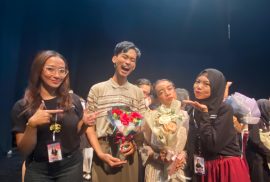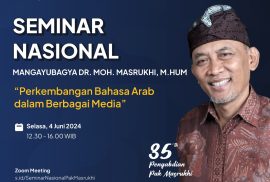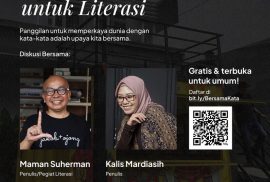Gadjah Mada Theater is one of the Student Activity Units under Gadjah Mada University. Its various sub-fields include acting, backstage (including lighting, costumes, makeup, and props), writing, and production. As part of the student activities at UGM, Teater Gadjah Mada acts as a place to channel talents and interests in performing arts. TGM actively contributes to the development of theater arts through performing arts activities and self-development. This process involves various competencies such as production, stage management, and stage art creation.
In line with its goals, Teater Gadjah Mada organizes their annual event, Studi Pentas, in order to be a means of education, improving social skills, and creativity for new members of Teater Gadjah Mada. The Gadjah Mada University students involved in the project come from various levels and study programs from various faculties at Gadjah Mada University, one of which is the Faculty of Cultural Sciences. Not a few students from the faculty joined and played important roles such as the main actor, director, treasurer, and so on. In this activity they performed their best. The activity also makes them closer to each other even though they are from different majors.






